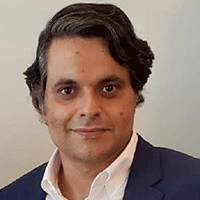Tuesday, November 2, 5:15-6:15pm EDT
Description: While the microfabrication technologies on large wafers have reduced the cost for mass production of microsystems, research on those with non-conventional processes/materials is still cost intensive. Certain multi project wafer services allow to reduce this cost for research, however the number of such services is limited. The purpose of this round table is to discuss on the current or future technologies, design methodologies, or data sharing methods that can significantly reduce this cost. Few examples of such technologies are advancement of additive manufacturing at the micro/nanoscale, collaborative robots, industry 4.0, roll-to-roll fabrication techniques, etc. Another solution can be data repositories with standardized microfabrication process data suitable for research, collecting the data available in the published articles, and utilizing it for building data driven models to assist researchers in optimizing their process parameters. The attendees are invited to share their views on the challenges they face in their research in fabrication of microsystems, and the future technologies or data/project sharing methods for meeting those challenges.
Roundtable Leaders:

Seyedhamidreza Alaie
Assistant Professor
Department of Mechanical and Aerospace Engineering
New Mexico State University
Las Cruces, New Mexico